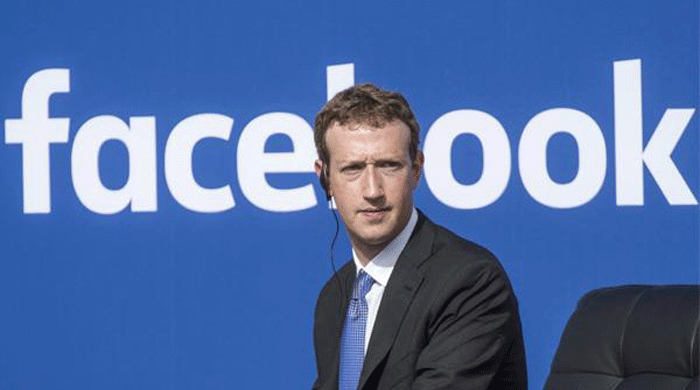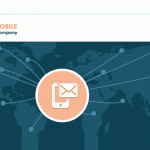The crux of the problem many people have with Mark Zuckerberg’s Free Basics is the effect it could have on the poor. The plan provides people in many developing countries free access to a curated list of websites, allowing limited use of things like online weather, reference, and (cough) social networking services. It’s a sort of charity-turned-scheme for world domination, seen as a bid to control the internet in developing economies by getting certain brands in early, and exploiting the lack of options in largely destitute populations. Sure, it seems nice to create limited Internet access where none existed before. But the potential for stagnation in the growing market and for exploitation of third-world populations is too much for some to bear.
In an era (and US election cycle) largely dominated by talk of a growing economic underclass here in the West, the idea of bringing this mentality home seems almost guaranteed to stir passions. Not only does Free Basics have the capacity to cause many of the same problems foreseen in India and around the world, but it opens the door to accusations the service sees North America as a similarly vulnerable market. There’s already one candidate for President who talks about the US becoming a “third-world country” — and these sorts of moves by the luminaries of Silicon Valley gives plenty of ammunition to people sympathetic to such rhetoric.
 The rumor, which comes from the Washington Post, says a Western Free Basics would focus on rural and low-income Americans who can’t afford decent internet service — either because the service is not inherently affordable, or because their income in low enough that they can’t afford even a reasonably priced connection. It would allow access to things like health, news, and job postings for free by creating partnerships between content providers and rural ISPs. The process of offering services for “free” in this way has come to be called “zero rating.” Its detractors are trying to lump it in with monopolies and other signs of an anti-competitive market.
The rumor, which comes from the Washington Post, says a Western Free Basics would focus on rural and low-income Americans who can’t afford decent internet service — either because the service is not inherently affordable, or because their income in low enough that they can’t afford even a reasonably priced connection. It would allow access to things like health, news, and job postings for free by creating partnerships between content providers and rural ISPs. The process of offering services for “free” in this way has come to be called “zero rating.” Its detractors are trying to lump it in with monopolies and other signs of an anti-competitive market.
Now, one of the steps Free Basics took in the wake of the enormous public backlash against its Eastern roll-out was to “open up” the program to third parties. This sort of fixes one of the problems, allowing entrants frozen out of the program to opt in so they too can compete for mindshare in this population. But it’s still the case only the most wealthy and established of players would be able to shoulder the financial burden posed by such a plan. Giving your product away for free is, after all, a luxury not everyone can afford.

Here the Internet.org logo is set against a picture of either a children from a developing Asian nation or a couple of West-coast hipsters.
Another issue is, in the West, even the poorest neighborhoods have at least some access to communications infrastructure you can’t necessarily rely upon in rural India. It’s less of a human rights issue to not own a computer when you can go apply for jobs on the computer at the library. Farmers have always been a sort of unofficial mascot for Free Basics, but here in North America farmers are generally quite sophisticated operators; they certainly don’t need Mark Zuckerberg to get the weather report.
So even as Western governments start to redefine internet access as a human right, we still find Free Basics has a less compelling raison d’être here than it does in some other parts of the world.
 That is, the service seems to have a less coherent reason to exist for the public; for its partners, the advantage is still clear. The program does require an active data connection after all, and simply doesn’t count data from certain services against data caps — meaning even “free” customers are, in principle, customers still. Not only do you get to ensure your services stay at the top of these markets, reaching a portion of your potential users with far less competition, you also get to track the activity of a users who might not otherwise have been the focus of any comprehensive life-tracking at all.
That is, the service seems to have a less coherent reason to exist for the public; for its partners, the advantage is still clear. The program does require an active data connection after all, and simply doesn’t count data from certain services against data caps — meaning even “free” customers are, in principle, customers still. Not only do you get to ensure your services stay at the top of these markets, reaching a portion of your potential users with far less competition, you also get to track the activity of a users who might not otherwise have been the focus of any comprehensive life-tracking at all.
The generational aspect to this issue is intriguing. Older people have dramatically slowed their internet adoption, in part because they find its insane proliferation of choice, often irrelevant choice, to be distracting and off-putting. Free Basics, then, serves to cut away the bother of a free, open market full of competitors in favor of a simple, curated toolbox. It’s a bit like the old America Online or CompuServe approach, but the simplicity is born of removing options rather than organizing them. Oddly, people seem to like that more: They know what they’re getting, and why. Even if the upshot is the same overly directed experience as an AOL, Free Basics feels more like you’ve made a choice to be restricted in that way. The idea is people feel not as though they’re being manipulated, but instead being empowered.
The Obama Administration is apparently in talks with Free Basics, and the White House could be looking at this as a way to deliver on its promise to prioritize online issues — a fact that makes this plan seem politically impossible. The majority of the ideological resistance to the idea is coming from the left, traditionally Democratic-leaning voters, and Obama will only be able to sway a portion of that group. Meanwhile, public and congressional opposition to any White House initiative should see to it that Republicans, who have historically been less concerned about internet freedom, will oppose it as well.
If Free Basics gets branded as both cyber-imperialism by the left and cyber-socialism by the right, it will have nowhere to go, and simply die in obscurity. The reverse, positive narrative — that Free Basics will be both a cyber-social safety net to the left and an example of the cyber-free market to the right — seems far less likely to materialize in the modern political climate.
The FCC is now facing calls to regulate against the zero rating. Large ISPs have been lobbying the regulatory body for years, as they look at the practice as a way to expand their dominance and increase revenue while getting to claim to be pursuing high-minded values and human rights.
Whether that’s a sincere motivation is almost beside the point, now.




